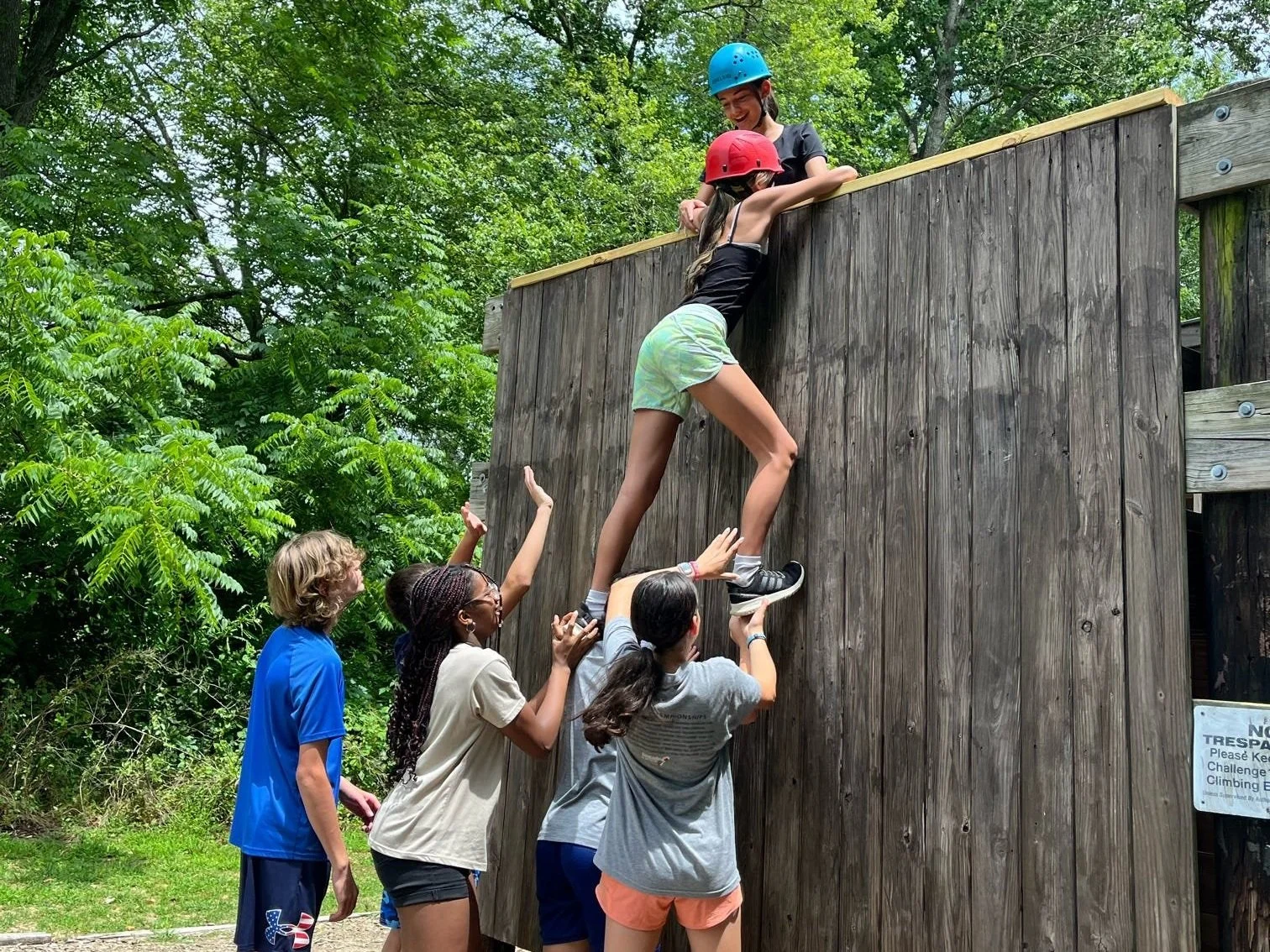From the Woods to the Workplace: What Nature Teaches Us About Executive Functioning
By: Dr. Kristin Johnson, Ed.D
In today’s fast-paced world, the ability to focus, adapt, and self-regulate—collectively known as executive functioning skills—are more essential than ever. These cognitive abilities form the foundation for success in school, relationships, and the workplace. Research points to a powerful and accessible way to build them: spending time in nature.
🌿 Nature’s Role in Developing Executive Functioning
Executive functions, including working memory, flexible thinking, emotional regulation, and self-control, are crucial for managing everyday tasks like following directions, staying organized, managing stress, and solving problems. Research indicates that time spent in nature plays a significant role in enhancing these abilities. For example, children who engage in nature-based activities show improved attention spans, better self-regulation, and greater resilience. Studies also show that walking in natural environments, compared to urban settings, can reduce stress and improve cognitive performance (Sippl, 2024; Bailey et al., 2018). Spending time outdoors is associated with improved mental health, including fewer symptoms of anxiety and depression, as well as physical health benefits like a stronger immune system and a lower risk of chronic conditions such as heart disease (Jimenez et al., 2021). These positive effects extend across all age groups and benefit both neurotypical and neurodivergent individuals, with research consistently showing that time outdoors enhances executive functioning in preschoolers, adolescents, and older adults alike.
🌱 Genesee Valley: 40+ Years of Learning Through Nature
For over 40 years, the Genesee Valley Outdoor Learning Center in Parkton, Maryland has embraced a simple yet powerful belief: nature is one of our greatest teachers. Before brain science research could quantify nature's impact on the brain, the founders of Genesee Valley recognized its powerful benefits. They were already showcasing how outdoor experiences could foster essential life skills—especially executive functioning—across all ages and abilities.Through thoughtfully designed nature-based programs, participants engage in developmentally appropriate challenges that foster growth at every stage. Young children build self-regulation, attention, cooperation, and curiosity through joyful activities like hiking, puddle jumping, and exploring the natural world. As they grow, leadership and team-building experiences strengthen communication, collaboration, and decision-making—key skills for success in school, the workplace, and life. For those seeking personal transformation, adventure therapy offers a blend of outdoor challenge and guided reflection, encouraging resilience, emotional strength, and self-awareness in a supportive setting.With a deep understanding of the need for these skills, Genesee Valley will continue to provide these transformative outdoor experiences for generations to come (Genesee Valley Outdoor Learning Center, n.d.).
🌳 Bridging the Gap Between Nature and the Workplace
The work done at Genesee Valley aligns seamlessly with the growing body of research that highlights the importance of nature-based learning in developing essential executive functioning skills. Skills such as adaptability, emotional intelligence, leadership, and problem-solving, which are cultivated through outdoor experiences, are highly transferable to the modern workplace. Individuals with strong executive functioning are better equipped to manage stress, think critically, and collaborate effectively (Diamond, 2013). These abilities align with what employers now recognize as "power skills" or "durable skills," including communication, initiative, and teamwork—traits essential across industries (Burning Glass Institute, 2021). Outdoor environments offer a low-pressure setting where individuals can practice high-stakes behaviors like seeking help, navigating uncertainty, and leading with confidence. By building these competencies early, individuals are better prepared to thrive in dynamic workplaces. Ultimately, nature-based learning equips individuals with a lifelong toolkit, promoting growth that extends far beyond the outdoors and into long-term professional success. Stay connected for an upcoming series of articles that will explore the powerful connection between nature and the development of executive functioning skills. We'll dive deeper into how outdoor experiences can enhance essential skills for life and set individuals up for success in both personal and professional settings.
Sources
Bailey, J. M., Westrup, S. L., & Nelson, T. M. (2018). Nature's impact on cognitive performance: The influence of outdoor environments on stress reduction and cognitive function. Journal of Environmental Psychology, 54, 129-135.
Burning Glass Institute. (2021). Power skills: The rise of durable skills in the modern workplace. Retrieved from www.burningglass.com.
Diamond, A. (2013). Executive functions. Annual Review of Psychology, 64, 135-168. https://doi.org/10.1146/annurev-psych-113011-143750
Genesee Valley Outdoor Learning Center. (n.d.). About us. Retrieved April 12, 2025, from https://www.geneseevalley.org
Jimenez, J. A., Córdova, A., & Garcia, S. (2021). Outdoor activities, mental health, and physical well-being: A review of nature-based interventions and their benefits. International Journal of Environmental Health Research, 31(3), 234-246.
Sippl, D. (2024). The cognitive benefits of nature: Walking in natural environments and its effects on stress and brain function. Journal of Environmental Psychology, 72, 1-11.

